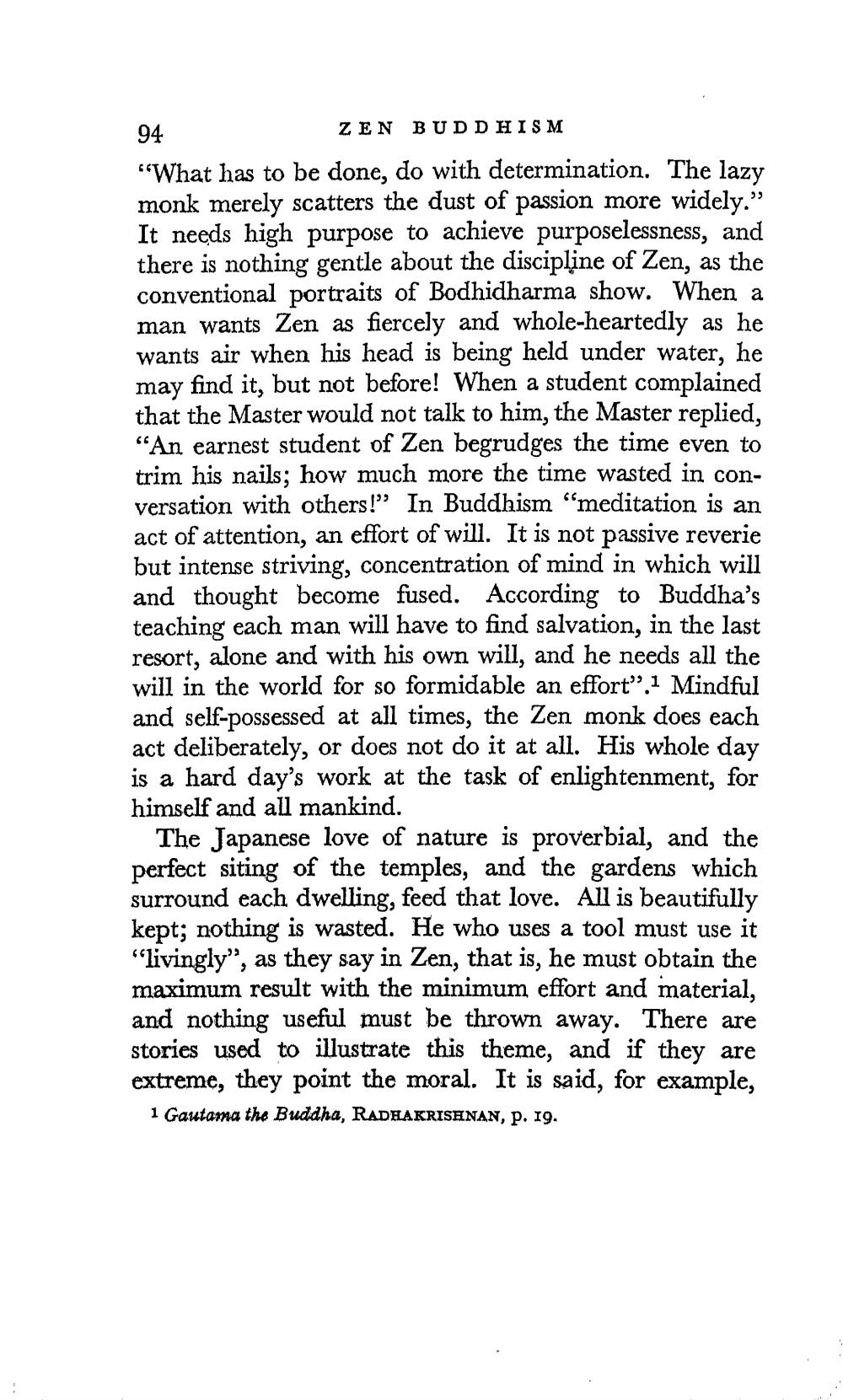________________
94
ZEN BUDDHISM “What has to be done, do with determination. The lazy monk merely scatters the dust of passion more widely." It needs high purpose to achieve purposelessness, and there is nothing gentle about the discipline of Zen, as the conventional portraits of Bodhidharma show. When a man wants Zen as fiercely and whole-heartedly as he wants air when his head is being held under water, he may find it, but not before! When a student complained that the Master would not talk to him, the Master replied, “An earnest student of Zen begrudges the time even to trim his nails; how much more the time wasted in conversation with others!” In Buddhism meditation is an act of attention, an effort of will. It is not passive reverie but intense striving, concentration of mind in which will and thought become fused. According to Buddha's teaching each man will have to find salvation, in the last resort, alone and with his own will, and he needs all the will in the world for so formidable an effort".1 Mindful and self-possessed at all times, the Zen monk does each act deliberately, or does not do it at all. His whole day is a hard day's work at the task of enlightenment, for himself and all mankind.
The Japanese love of nature is proverbial, and the perfect siting of the temples, and the gardens which surround each dwelling, feed that love. All is beautifully kept; nothing is wasted. He who uses a tool must use it "livingly", as they say in Zen, that is, he must obtain the maximum result with the minimum effort and material, and nothing useful must be thrown away. There are stories used to illustrate this theme, and if they are extreme, they point the moral. It is said, for example,
1 Gautama the Buddha, RADHAKRISHNAN, P. 19.




